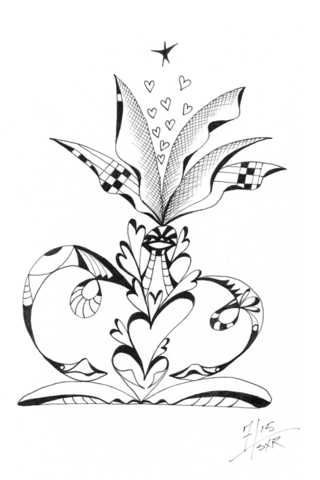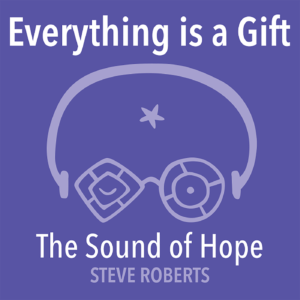It was Steve Jobs’ parting gift. The Apple founder saw to it that each member of the packed house at his memorial service, which included a dazzling representation of who’s who, departed with a copy of the spiritual classic, “Autobiography of a Yogi”. I can only imagine what it was about the book, published in 1949, and its author, Paramahansa Yogananda (1893-1952), that so captivated Mr. Jobs that he wanted the swami’s wisdom to touch some of the world’s most influential people. One possibility is Yogananda’s loving embrace of the totality of humankind, as well as the simplicity and depth of his understanding. Mr. Jobs, after all, aspired to create computer technology that would provide the equivalent of a bicycle for the mind to virtually everyone on earth. It’s a small step to also imagine him being especially intrigued by Yogananda’s counsel that every life circumstance can be effectively addressed with the judicious use of a single question: “Who am I?” Discovering our answer to that question may be life’s most rewarding pursuit, beginning with realizing who we are not. A sinner, for instance.
The parish priest at my father’s wake mentioned in passing that we were all sinners. He and I had never met. I had been disinherited for changing my name and this was the first time in several years that I had been invited to my family home, where, in the living room bay window overlooking one of New York’s Finger Lakes, my dad’s body lay in an open coffin. He’d been dressed in a red and white checked shirt under a long-sleeve navy blue cardigan sweater. His putter was snugged up next to him. Those clothes might have been exactly what he was wearing a few days earlier when his heart stopped during a Saturday morning round of golf with some pals. He’d had an all-but-fatal heart attack a decade earlier, and a year or two before that there was a morning when I, then in 11th or 12th grade, overheard him in bed crying out in terror as my mother was dialing for an ambulance. Other than rage, it was the only incidence of primal emotion from him I ever witnessed.
While his death was not unexpected, my mother told me that, upon hearing the news, her first thought was, “I’m not ready.” My first thought was, “Thank god he’s off my back.” I’ve mellowed in the 45 years since, having learned that death ends a life but not a relationship, that the only way someone is on our back is we put them there, and that there is no such hour on the timepiece of fate as too late when it comes to growing compassion and forgiveness. The evening before the funeral, after the last of the well-wishers departed, my two younger brothers and I “examined” our dad’s body in more detail. I was the instigator. Appreciating some of the particulars of “corpse presentation” helped solidify for me the distinction between my father’s essence, which, despite my resistance to parts of it, did feed me with the encouragement that there were no limits to what I was capable of pursuing, and the flesh that essence no longer animated. At the time, I had recently exited my job announcing news at one of Boston’s major radio and television stations to become a 27 year-old college freshman at Amherst, the oldest freshman the school had ever admitted I was told, and, given its stature as one of the world’s elite colleges, likely the only one who’d graduated next-to-last in his high school class.
It was several years before I encountered Yogananda. Parochial grammar school and a high school seminary had long ago exhausted my taste for dogma. (When somebody with institutional clout has told you enough times that their’s, and by extension yours, is the one true religion, and that the pain of that remark leaves you stupefied, the concept of us-and-them running contrary to your every cell of intuition, your experience of the Divine since birth, and you’re barely 15, it’s time to broaden the scope of where you look for wisdom.) “Speak for yourself,” I said. To which the pastor, perhaps unaccustomed to pushback, or at least while standing over a dead body, replied a bit tartly: “Are you saying you’ve never sinned?” “Oh, no,” I said. “You name it, and I’m sure I’ve done it, or wanted to, or fantasized about it. But I’ve also played a ton of baseball, and I can’t imagine ever thinking of myself as a baseball player.”
I’ve come to celebrate my early disillusionment with religious authority (in contrast to my attraction to spiritual awareness) as God saying to me, “Steve, don’t get caught up in the pain. There’s something here you need to learn.” And that is: our answer to “Who am I?” resides only within ourselves.
Today I know that Hillary Clinton is no more a woman than I am. Barack Obama is no more an African American man than I am. Those identities are just who they are in this incarnation, or more accurately a part of who they are. For nearly 30 years in certain circles I’ve called myself an alcoholic. While I find it valuable to do so (because, lord knows, I can’t drink in safety, and acknowledging that fact helps me remember it, and may help others with a similar diagnosis), it’s certainly not who I am. Not really. Not at square one. It’s just a role I’m playing—one I’ve been given, or have acquired––like man, American, writer, grandfather, cancer survivor and all the other conventional identities I happily use for the sake of convenience. Who I am, however, is infinitely more expansive than any of them; it’s bigger, in fact, than anything I have language for, or can even conceive. I have no idea who I am, at least not one I hold tightly. But I do have an experience of it. Which motivates me to engage in the seemingly impossible though quite delightful task of coming up with a worthy expression of that experience (the drawing that accompanies this essay is an example). Yogananda called himself a tiny bubble of laughter in the sea of mirth. (I wouldn’t be surprised if Steve Jobs saw Apple that way.) I say, less poetically, “I am a manifestation of God”––not special, but sacred, along with you, and the kitchen sink, and every other speck of existence.
To think “I am God,” is mistaken, cautioned Yogananda, but to think “God has become me” is the epitome of wisdom.
Big thinker that he was, Steve Jobs would quickly have grasped that the question “Who am I?” leads naturally to the question “What’s going on?” I imagine his smile when he considered introducing the world’s movers and shakers to Yogananda’s view on that question, a view that includes: “All paths are paths to God, because, ultimately, there is no other place for the soul to go.”





Steve,
Haven’t heard from you in a while. This is delightful. I remember Steve’s habit of reading Autobiography of a Yogi annually. I could have sworn I bought it, but I can’t find it and I know I didn’t read it. Anyway, thanks for the reminder, it’s on it’s way.
I also held a lot of resentment and anger toward my Dad. Even though he got sober for the last nine years of his life, it didn’t help our relationship. I was angry that he would never admit to being an alcoholic, me being the expert and running Park Ridge Chemical Dependency and a charter member of Children of Alcoholics.
However, he gave me such gifts that I didn’t appreciate until I came to the realization I was not only a COA, but one myself. Thankfully it only took a year some 30+ years ago. I also realized that he loved me in his own way, at least that’s what I now know in my heart, I just didn’t appreciate how he showed it. My two siblings who didn’t get the message have suffered greatly from that misconception.
So thanks Dad and Dads everywhere – one of our greatest teachers.